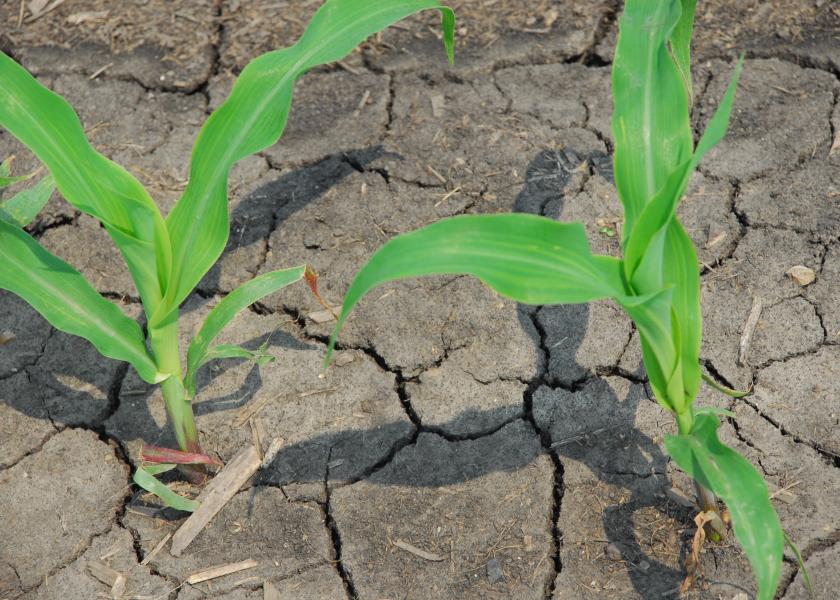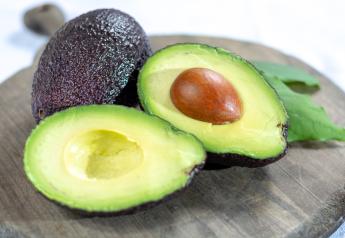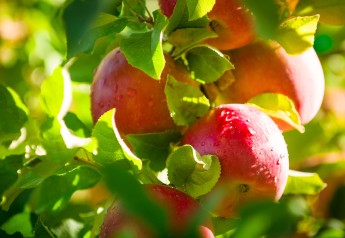American Farm Bureau survey reveals increasing toll of western drought

A new survey from the American Farm Bureau Federation reveals the increasing toll of the western drought on crop and livestock producers.
The third edition of AFBF’s Assessing Western Drought Conditions survey indicates expected reduction in yields, removing or destroying orchard trees or multiyear crops, and selling off portions of herds and flocks, according to a news release.
“The effects of this drought will be felt for years to come, not just by farmers and ranchers, but also by consumers,” American Farm Bureau Federation President Zippy Duvall said in the release. “Many farmers have had to make the devastating decision to sell off livestock they have spent years raising or destroy orchard trees that have grown for decades. Long-term solutions to drought mitigation must be discussed and implemented to ensure farmers in drought-prone regions can continue to provide safe, affordable and abundant food for their states and the rest of the country.”
The survey, conducted in June and October 2021, included more than 600 responses from county and state Farm Bureau leaders, staff and members in 15 states, including Texas, North Dakota and California, according to the release.
Nearly three out of four who responded rated a reduction in harvest yields as prevalent or higher, while two out of three respondents reported prevalence of selling off portions of herds or flocks.
Across the surveyed region, respondents expected average crop yields to be down 38% this year because of drought conditions, the release said.
Growers also reported additional regulations on well drilling that have stunted access to groundwater, which dropped marginally in prevalence from 47% of respondents last year to 43% this year, according to the survey.
The survey said one California producer noted that drilling a new well would be over a year and a half away.
Even so, the survey indicated more than 60% of respondents continue to report increased use of groundwater, with the highest uses in California (63%) and Arizona (62%).
In some cases, wells do not guarantee reliable water access, as the survey indicated more friction with adjacent landowners on well water usage, in addition to issues with salinity and additional mineral contamination barriers.
There was a jump in the percentage of respondents reporting increased restrictions on agricultural water use in their area as prevalent or higher (50% last year vs. 57% this year), according to the survey.
“As reservoir levels decline, water management organizations such as irrigation districts often make cuts to allocations,” the survey said. “In the Colorado River Basin, for example, both Lake Mead and Lake Powell, which provide surface water across 5.5 million acres of land in seven western states, are below 30% of their total capacity.”
Drought contingency plans in the lower Colorado River Basin place surface water allocation curtailments on states as the water level drops. Recently, water levels in Lake Mead have dropped to 1,041 feet, adding to concerns about the health of the Colorado River system and potential impacts to productive agricultural regions, according to the release.
Drought forcing orchard destruction
The survey said that the overwhelming majority of fruits, tree nuts and vegetables are sourced from drought-stricken states where “farmers are feeling forced to fallow land and destroy orchards,” which the survey said will likely result in American consumers paying more for these goods and perhaps relying on imported supply to a greater degree.
“Drought conditions in the U.S. also risk global access to some items like almonds, since California produces 80% of the world’s supply, greatly limiting buyers’ procurement options,” the survey said.
Seventy-four percent of respondents rated a reduction in harvest yields due to drought as prevalent or higher in their area, about the same as last year (72%). Forty-two percent of those who took the survey rated the intention to switch planned crops for the growing season due to drought as prevalent or higher (up from 37% last year).
The survey said that those who reported tilling under crops because of drought conditions jumped from only 24% of respondents last year to 37% of respondents this year, and 33% of respondents reported destroying and removing orchard trees and other multiyear crops as prevalent or higher, up from only 17% last year.







